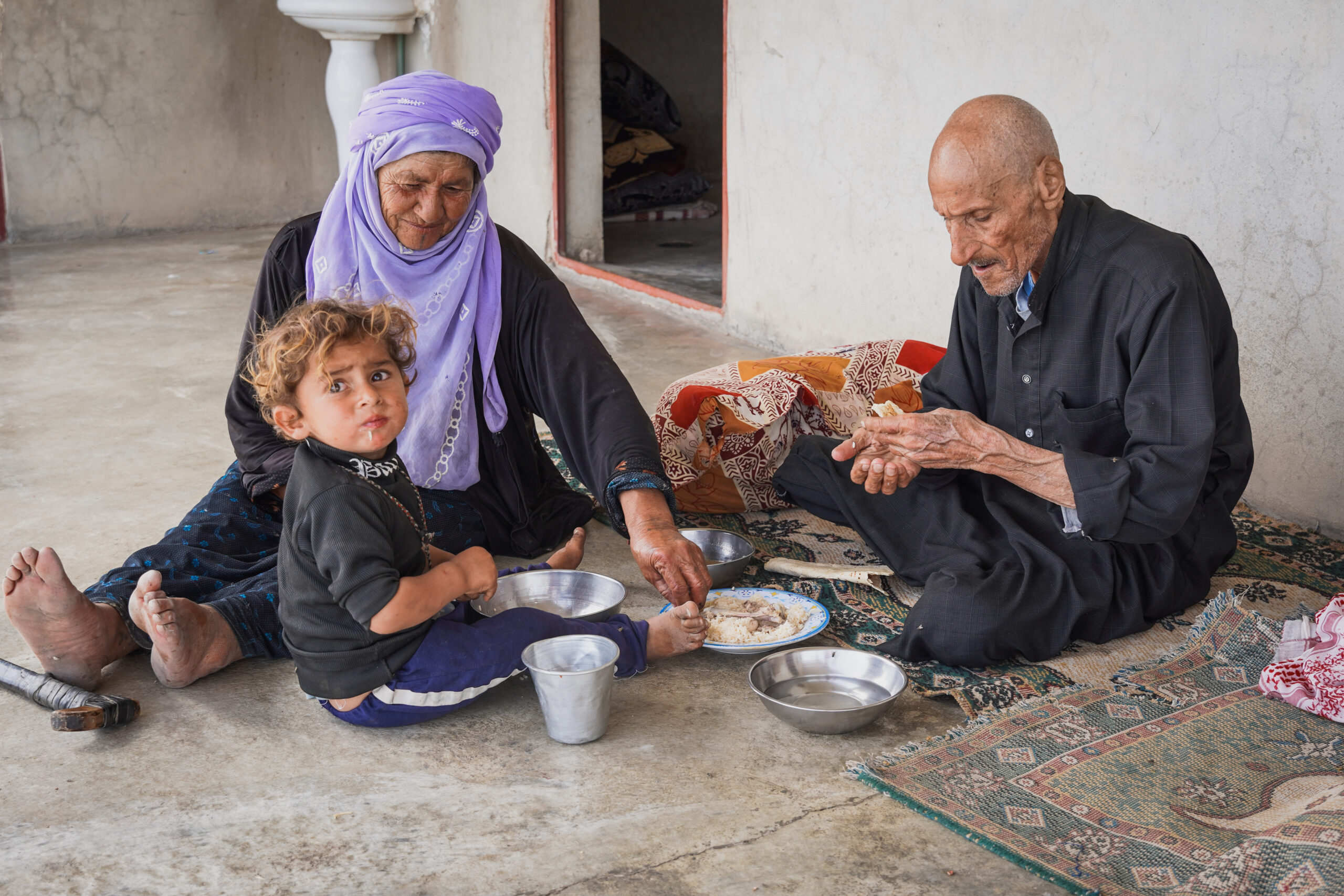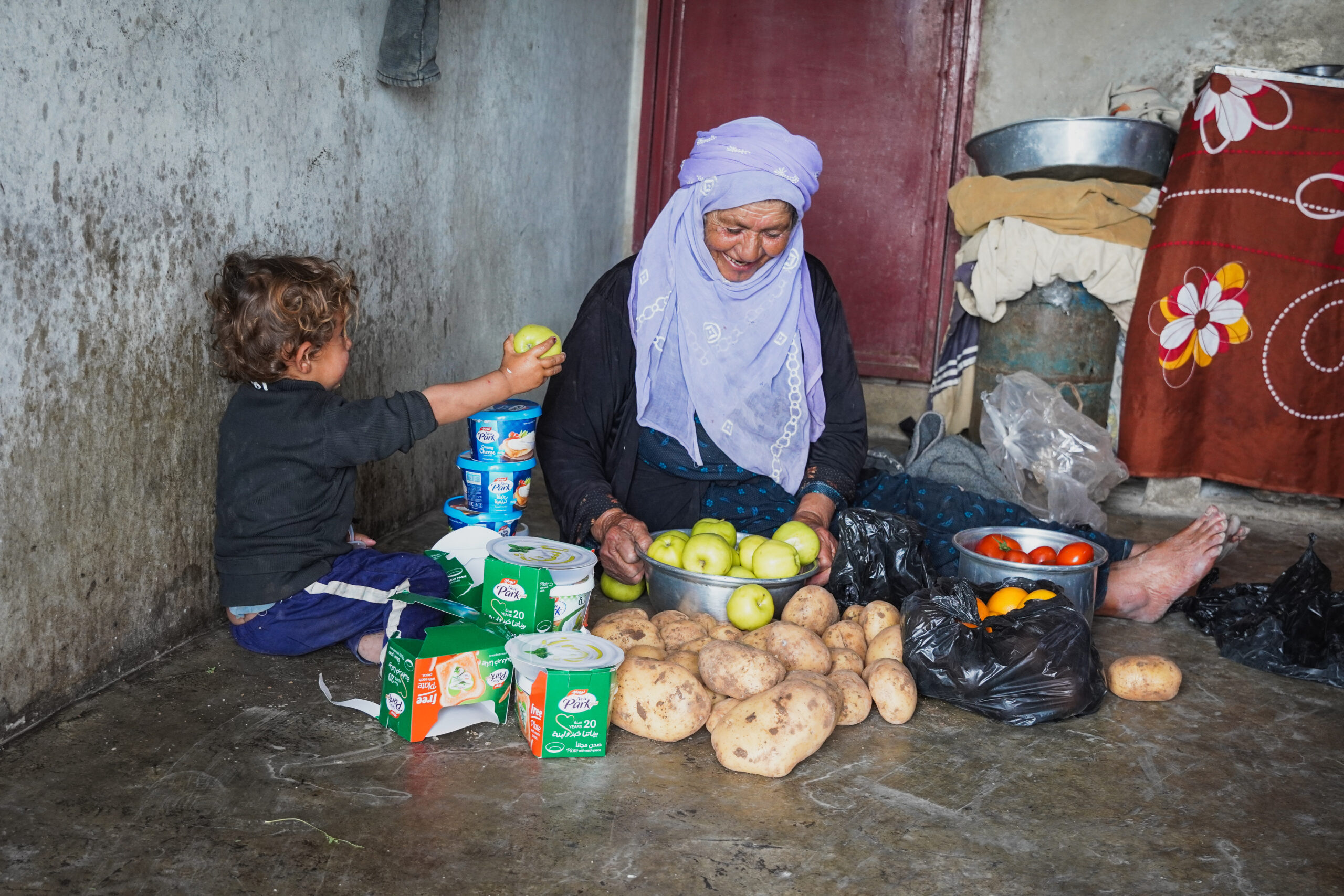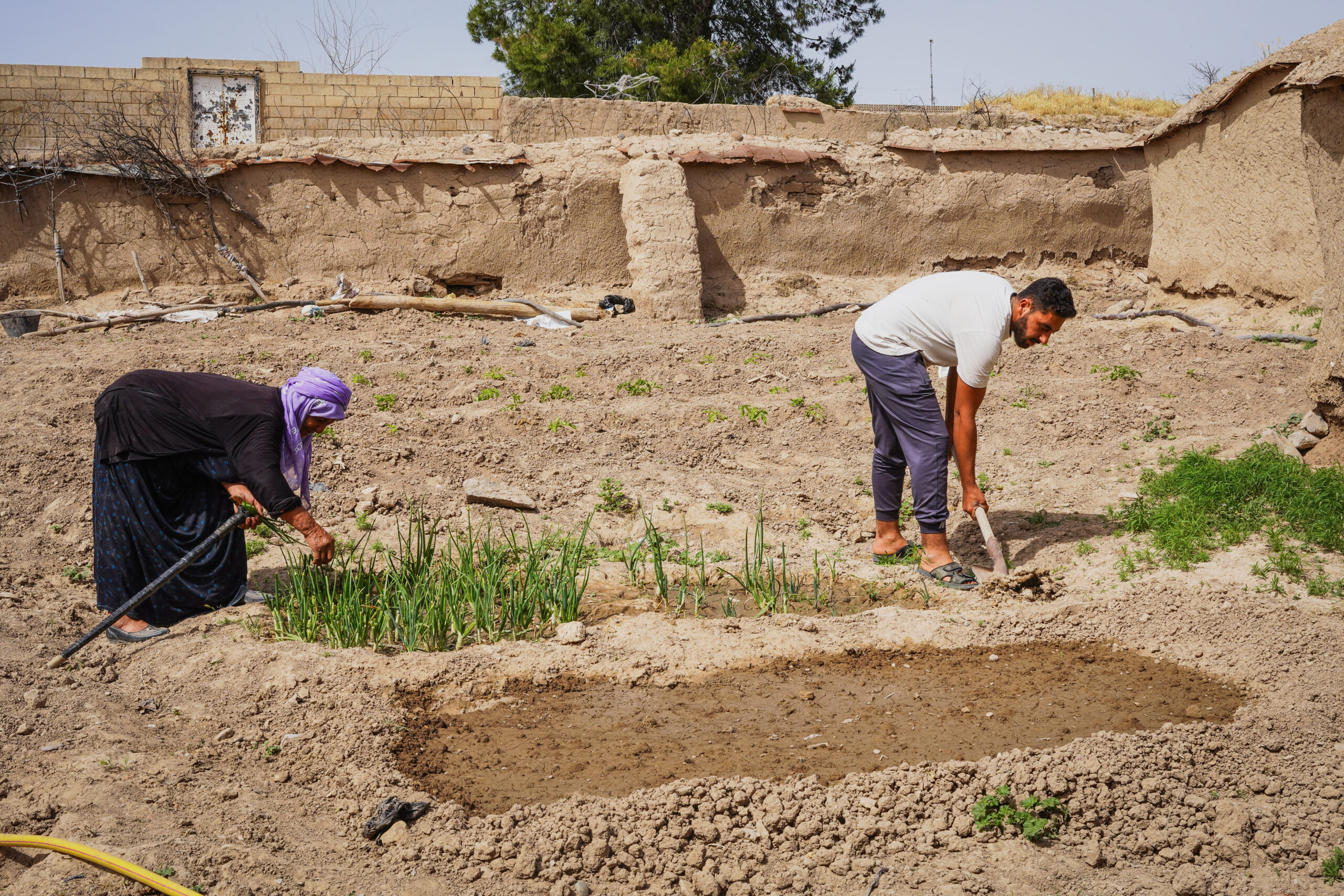The fertile plains of Syria’s northeastern region, once the country’s breadbasket, now bear the scars of conflict. Years of war have devastated agricultural lands, disrupted food production, and left countless families struggling to put food on the table.
The Shelter and Food Emergency Response (SAFER) program, funded by the USAID Bureau for Humanitarian Assistance, aims to improve food security for people in northeast Syria.

Saleh, right, redeemed his monthly supplementary food voucher to buy fresh meat, produce, and dairy products to feed his family, including his young grandson. Before the SAFER food voucher initiative, they did not have the means to buy nutritious food regularly.
This year, more than 2,000 households will receive supplementary food vouchers from the SAFER program. Families can exchange the vouchers for dairy products, meat, fruits, and vegetables at local markets. This initiative will help families access diverse, nutritious food while strengthening local businesses in Al-Hasakeh and Ar-Raqqa governates.
Saleh, a man in his seventies, lives with his wife, two children, and two grandchildren in a quiet village in the region. Saleh suffers from multiple ailments and needs to eat a special diet. However, the family can rarely meet those needs with their limited income.
“Because of poverty,” Saleh explained, “I can’t afford the diet my doctor recommends. It requires fruits, vegetables, and meats most of us can’t even dream of.” After losing his job and his pension, he relies on his son, Muwaffaq, to earn money for the whole family and bring home food.
To help, Saleh’s wife cares for three chickens, hoping she can feed her family and sell a few eggs. “All I can do is tend to my three chickens, hoping to provide eggs for the little boy or sell them to buy him treats like biscuits and juice, things children crave,” she said.

Two thousand households in northeast Syria will receive supplementary food vouchers this year, improving their access to nutritious food.
The family of six was selected for the SAFER food voucher initiative. Each month, they can buy the equivalent of 45 USD in fresh food through the program. The vouchers fill the gap when Muwaffaq’s income and the produce and eggs from their garden aren’t enough.
“Thanks to this SAFER,” said Saleh’s wife, gesturing towards a plate of freshly cooked meat, “we can finally have some meat in our meals. It makes a world of difference, especially during Ramadan.” She bought it with a recently redeemed food voucher, a small yet significant purchase for the family.

Saleh’s family tends to their home garden often, but it does not provide enough fresh food to feed the family. Supplementary food vouchers fill the gap when income and homegrown food are not sufficient.
The family’s garden, with its rows of eggplant and tomato seedlings, does not yield enough for daily meals. But with the vouchers, they don’t have to worry about the young children’s development. “The nutritious food provided by SAFER program, including vegetables, fruits, cheese, and protein, has been a lifesaver for my father, mother, and my son,” said Saleh’s daughter Reham. “It lessens the burden, especially since I can’t always afford to provide everything my son needs.”
This spring, families can start using a new electronic voucher system. This easier form of payment will make transactions more reliable for both customers and vendors.
By providing access to nutritious food, SAFER not only alleviates hunger but also offers a sense of dignity and hope. It empowers families like Saleh’s to weather the storm and rebuild their lives, one meal at a time.



